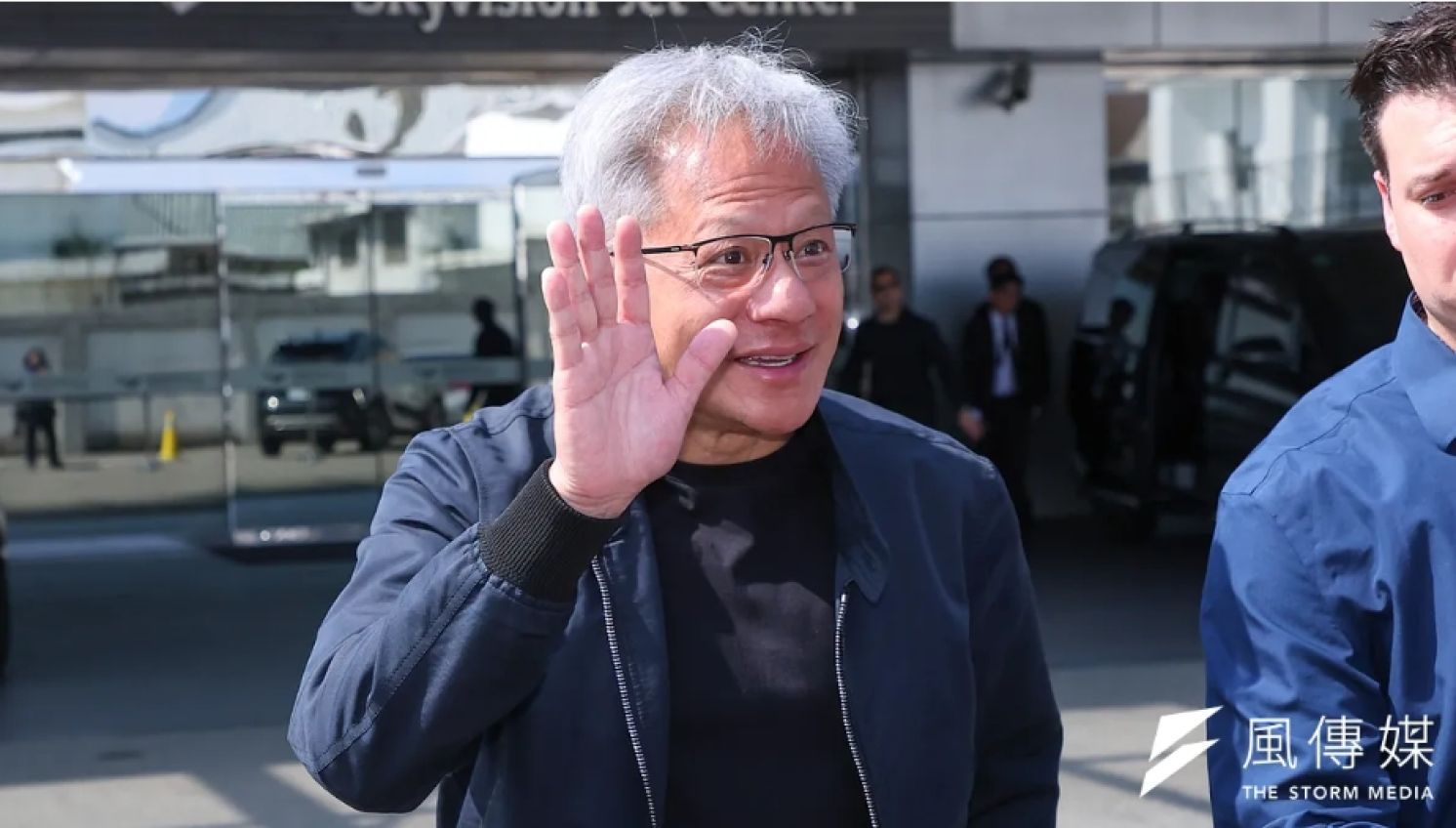
Huang Backs Nuclear Power in Taiwan, Criticized by DPP Supporters as Pro-China
The Storm Media Editorial, June 27, 2025
When NVIDIA chief executive Jensen Huang said that “Taiwan should invest in nuclear power,” it set off a firestorm. Online criticism and smearing erupted. For someone as seasoned as Huang to appear unaware of a certain sensitive “local sentiment” in Taiwan made him seem like a political novice.
Wherever he goes in Taiwan, Huang creates a stir. As the "godfather" and public face of artificial intelligence (AI), every move and word of his is scrutinized. His speeches, billion-dollar banquets, and down-to-earth visits to night markets have all captivated the island. Online, there’s been virtually no criticism—until now.
This dynamic has shifted slightly. During a speech, Huang stated that the biggest challenge facing the AI industry is the energy issue, and he called for support of all energy sources in Taiwan. He specifically said, “Taiwan absolutely should invest in nuclear power,” and that no form of energy should be stigmatized.
The comment that “Taiwan absolutely should invest in nuclear power” clearly struck a nerve with the ruling Democratic Progressive Party (DPP) and its supporters. A backlash followed, with critics and pro-DPP online activists accusing him of various misdeeds. Some asked, “Who is he to talk? He didn’t choose Kaohsiung as headquarters and now he’s touting nuclear power. He even went to China—his stance is obvious.” Others sarcastically asked if nuclear waste should be stored in his room, and some outright labeled him a “Chinese Communist sympathizer.”
But Huang’s comments shouldn’t have come as a surprise. Electricity is the foundation of production, manufacturing, and business. Few entrepreneurs oppose nuclear power. As the head of an electricity-intensive AI industry, he has a vested interest in energy supply. Moreover, many scientists and engineers see nuclear power as a manageable and controllable risk, not something to be rejected in a sentimental or ideological way. In fact, when asked about AI’s energy consumption in an interview with a U.S. media outlet last year, Huang openly said nuclear power is a very good option.
Still, by saying so publicly in Taiwan, Huang directly challenged the DPP’s long-standing anti-nuclear policy—one of its sacred tenets. The party’s online operatives pounced immediately. If Huang saw the criticism, he might well feel like quoting the Chinese proverb, “How lush the fragrant grasses once were, now reduced to bitter weeds.”
Few would think this is Huang’s fault. If there’s any mistake, it’s perhaps that he didn’t realize how, under the Tsai administration, the space for open discourse has shrunk and its quality declined. Anyone who disagrees with the ruling party or threatens its interests is quickly attacked. The once-praised warmth and hospitality of Taiwan seem to have vanished from its political landscape. Polarization now breeds hatred and smearing. Public policies like nuclear energy have become binary battlefields, leaving no room for serious discussion. This is a side of Taiwan’s culture and environment that Huang clearly did not understand.
Business leaders in Taiwan can voice support for nuclear power without much fuss, because people don’t take it seriously. But given Huang’s international stature and influence, his vocal support for Taiwan investing in nuclear power inevitably caused a stir—and a rapid, fierce response.
Looking at the broader picture of public policy, the DPP’s “Nuclear-Free Homeland” policy has long been riddled with problems and is now hard to sustain. With nuclear power phased out and renewables like wind and solar falling short, Taiwan relies almost entirely on fossil fuels. Thermal power plants now account for over 90 percent, sometimes even 95 percent, of electricity generation, worsening carbon emissions and air pollution. Even the government’s repeated assurances of power stability are questionable given this heavy dependence on fossil fuels. Recently, there were reports of Taiwan Power Company secretly activating old generators—though officials denied it, the public’s concerns about electricity supply are very real.
If the DPP were willing to move past its ideological obsessions and look at global trends, it would clearly see that the nuclear-free dream is baseless. Worldwide, reducing carbon emissions is the top priority, and no country is seriously discussing phasing out nuclear power anymore. Over 100 aging reactors in developed countries have had their lifespans extended, and new plants are being built. Nuclear power is making a strong comeback.
Just last week, President Donald Trump of the United States signed an executive order aiming to quadruple American nuclear output in the next 25 years. South Korea reversed its anti-nuclear stance and is now promoting nuclear technology, even exporting it. Japan, despite the Fukushima disaster, announced last year that it aims to have nuclear power account for over 20 percent of its energy mix by 2030. Only Taiwan and Germany are still doggedly sticking to the dead-end path of abandoning nuclear energy.
The DPP's response to Huang's comments fell back on its three familiar principles: nuclear safety, nuclear waste disposal, and social consensus. But based on decades of operational experience from over 500 nuclear reactors worldwide, nuclear safety is manageable and controllable. As for waste, international examples prove it is a solvable issue—Taiwan’s difficulty lies in political obstruction, not technical limitations. And when it comes to public opinion, multiple surveys in recent years show that supporters of nuclear power now outnumber opponents.
From: https://www.storm.mg/article/11041181
〈Back to Taiwan Weekly Newsletter〉